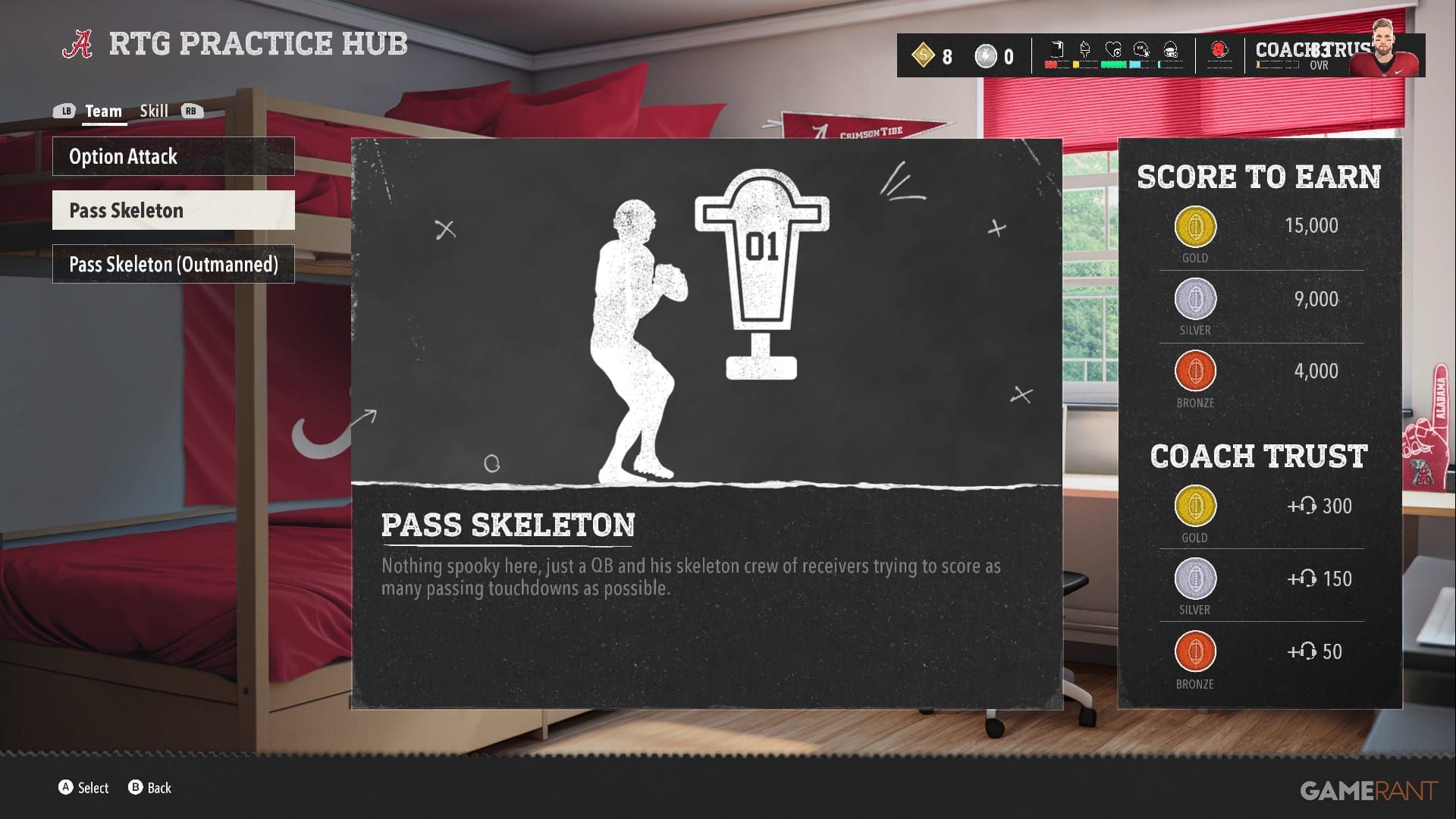How to Increase Coach Trust & Happiness in College Football 26 RTG
Description
If you want to get game time in College Football 26’s Road to Glory mode, you’re going to need to build some trust with your coach and keep them happy. Depending on the ‘journey’ you chose during the RTG mode setup, this can be incredibly difficult. Those who come in as elite or blue chip prospects will find game time comes more easily, but for those coming in as an underdog or contributor, the grind to just getting to step onto the gridiron can be a long and perilous path.
In this guide, I’ll explain how to increase coach trust and happiness in College Football 26 to help your up-and-coming player finally get the game time they deserve.

Related
10 Fastest QBs in College Football 26, Ranked
Having a fast QB can make rushing and getting around the field much easier. Here are the 10 fastest QBs in College Football 26, ranked.
Make the Right Decisions On and Off the Field
You can increase Coach Happiness by playing well when you are chosen to step onto the field, making smart decisions when setting your weekly agenda, as well as in the college life scenarios that pop up from week to week. The four main things that influence Coach happiness are:
- Game Performance
- Practice
- GPA and Leadership
- Scenarios
Game performance is self-explanatory. Play well when you get game time and avoid making mistakes, and your coach will be happy with how you’re playing. Each week, you’ll also be able to complete a Practice session, which gauges your performance in some training drills. If you don’t get a medal, you’ll lose Coach Happiness. A bronze won’t change things, but silver and gold will get you a small boost. If you’re not getting game time, it’s important to maximize the Coach Happiness you’re earning from Practice each week.
Next are your GPA and Leadership meters. These are directly impacted by using your ‘Energy’ in your weekly agenda to study. The higher your GPA, the happier your coach, so make sure you’re spending a significant amount of time each week working on this. Leadership is another meter you’ll need to fill by spending ‘Energy’ on it in your weekly agenda. Not only does this improve your Coach Happiness, but you’ll also get a team XP multiplier, which increases the higher your Leadership.
These are integral to improving and maintaining Coach Happiness in College Football 26, so I spent the majority of my ‘Energy’ each week focusing on these two areas.
Failing tests and having a low GPA can make you ineligible, and your Coach Happiness will plummet.
Finally, you’ll come across text-based Scenarios as you progress from week to week. These can be a classmate offering you a cheat sheet for an upcoming assignment, to sneaking out to a party the night before a game, or even being tested by your coach on your knowledge of the playbook. Making sure you make the right decisions will keep your coach happy, but can also have knock-on effects on things like your GPA and Leadership.
It’s important to keep your coach happy, as it’ll help you to progress through the ranks of Coach Trust even faster.
You can also get skill points by doing training in your weekly agenda each week which can be used to upgrade your player. This can be handy if you really need to give your player an edge, but it’s not worth spending ‘Energy’ on if your Academics and Leadership are struggling. The same goes for working on your Brand.
Building Coach Trust requires you to perform well in practice every week and when you get a chance on the field. The good news is that you can ‘sim’ practice and you’ll still earn Coach Trust (the amount is shown in the bottom right corner of the screen once it has been completed). The better your performance in practice, the more your coach will trust you.
Similarly, any time you step onto the field, make sure you’re delivering in the game. Score touchdowns, make interceptions, gain serious yardage, and complete passes, and you’ll quickly start gaining the confidence of your coach. Plus, winning games when you’re playing is always going to help build a stronger level of trust between a player and their coach. On the other hand, if you’re getting sacked, fumbling the ball, and throwing interceptions, you’ll quickly lose any trust you’ve earned.
You can always change difficulty if you’re consistently struggling to perform well in training and games.
As noted above, keeping Coach Happiness high will allow you to build Coach Trust faster, which in turn allows you to start making your way up the depth chart. As such, Coach Happiness is key to building a strong, trustworthy relationship with your coach and establishing yourself as a key player in the team.





